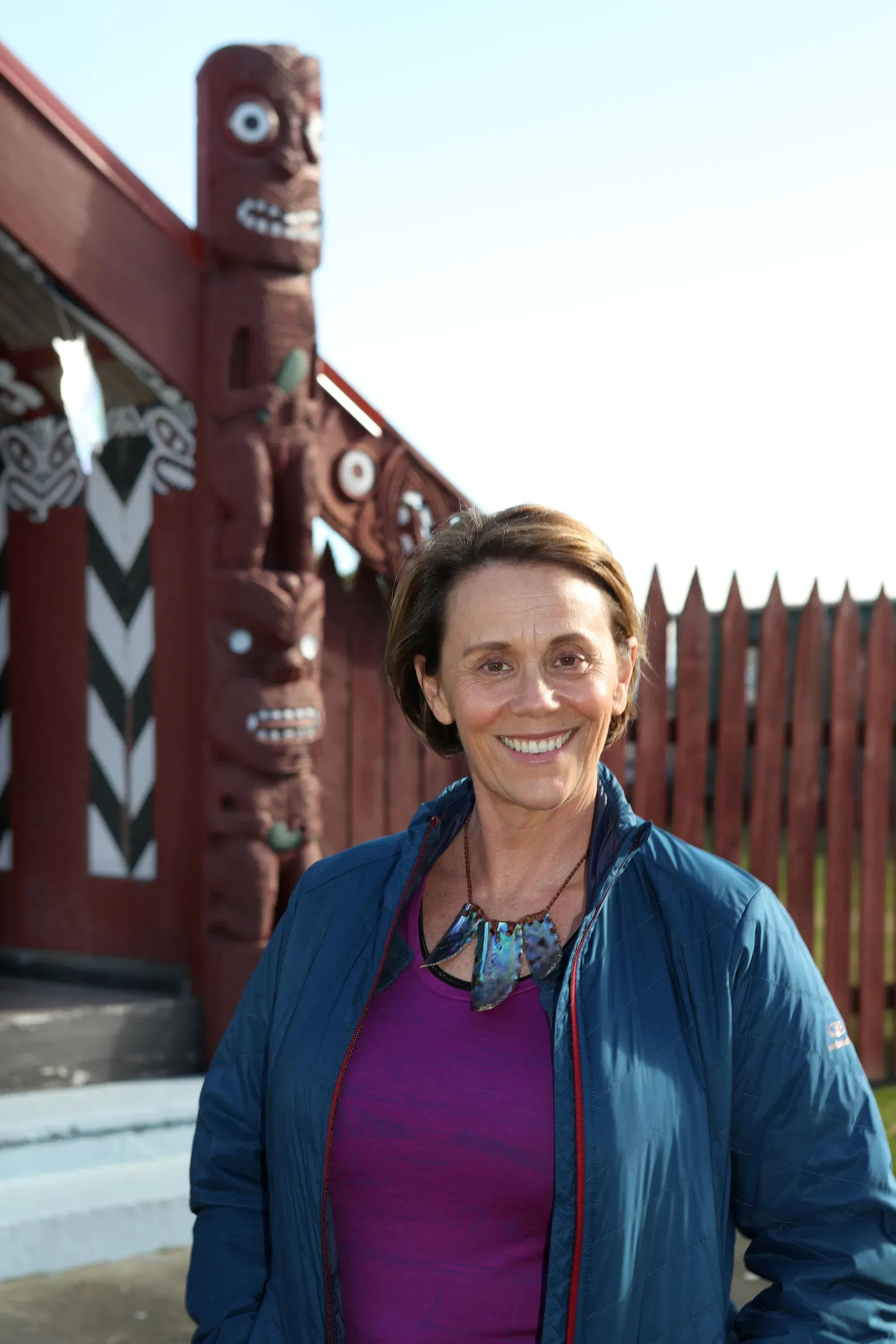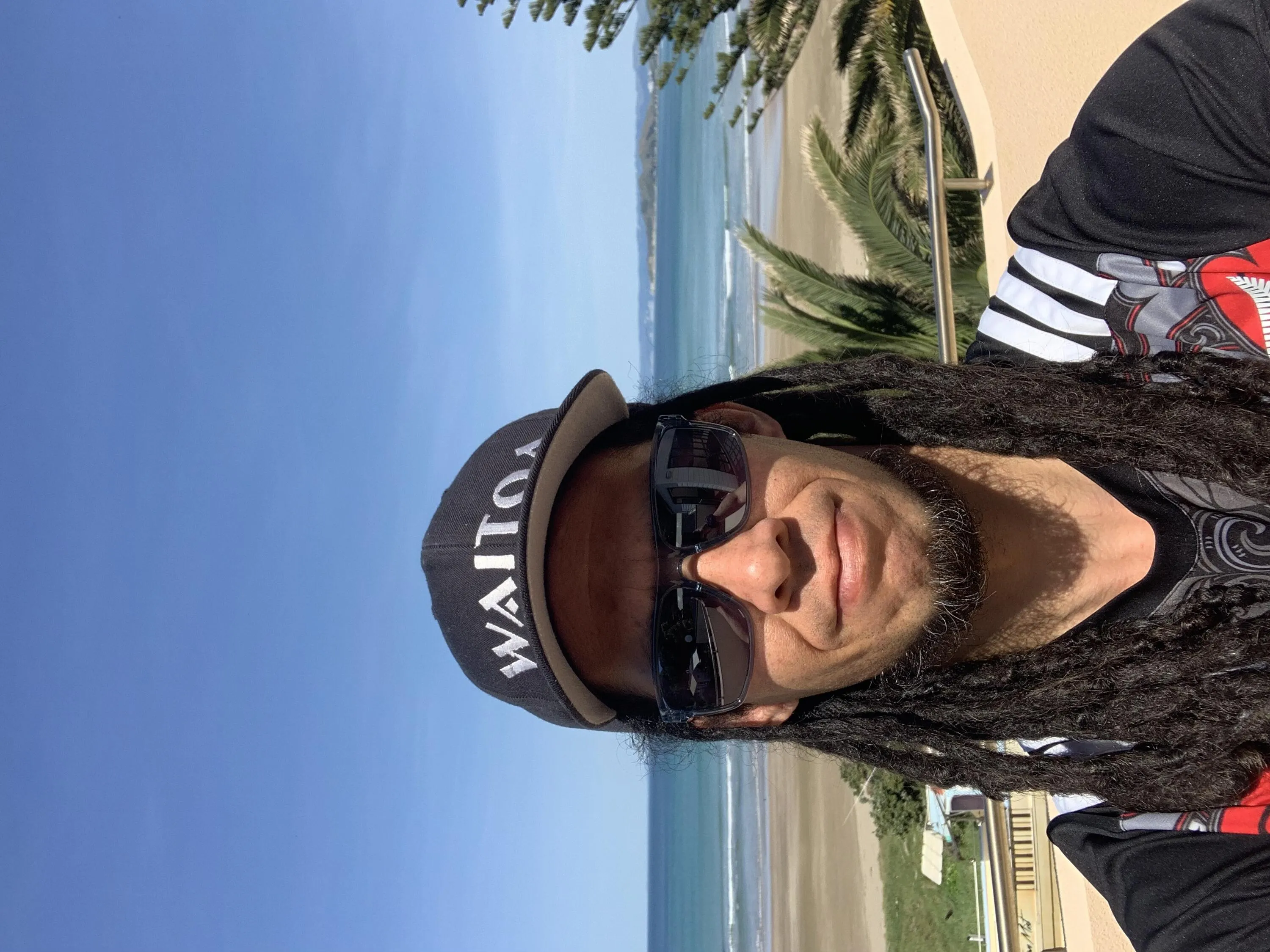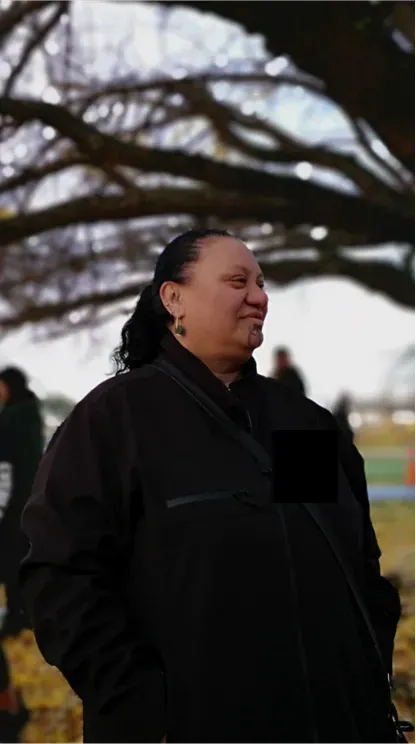Run It Straight
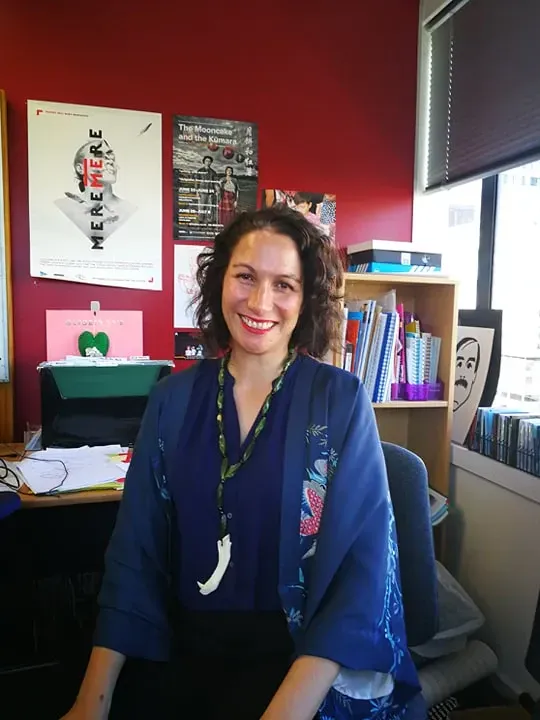
This month’s PANNZ online hui acknowledged Te Wiki o te Reo Māori and explored how artists and arts organisations are doing their part to celebrate, innovate and revitalise the Māori language. Moderator Dolina Wehipeihana (Ngāti Tukorehe, Ngāti Raukawa) gives us her take on this important kaupapa.
I’m on a te reo Māori learning journey.
I think I’m probably a pretty average student. I’m late on an assignment, and Mate Karauna (COVID-19) has meant lots of our classes are via Zoom - so sometimes if it gets difficult, I just kind of slide off screen.
Heoi ano, I tell myself to just keep turning up. My actor friend Waimihi Hotere once said the hardest part of acting was just getting to rehearsals; once you’re there - you’re fine.
During the online hui, Hōhepa Waitoa (Ngāti Porou, Rongowhakaata) highlighted it only takes one generation to lose the language but three generations to get it back. THREE. Turning up is truly an investment for the future of my whānau.
“I’m really enjoying the way that the arts industry is taking on te reo, tikanga and Mātauranga Māori narrative,” says Waitoa.
He has great advice for working in the arts which I’ll apply to my te reo learning journey. “I just run it straight. You gotta be comfortable with who you are and what you’re doing, and just be ready to go in straight and hard.”
Revitalisation through music
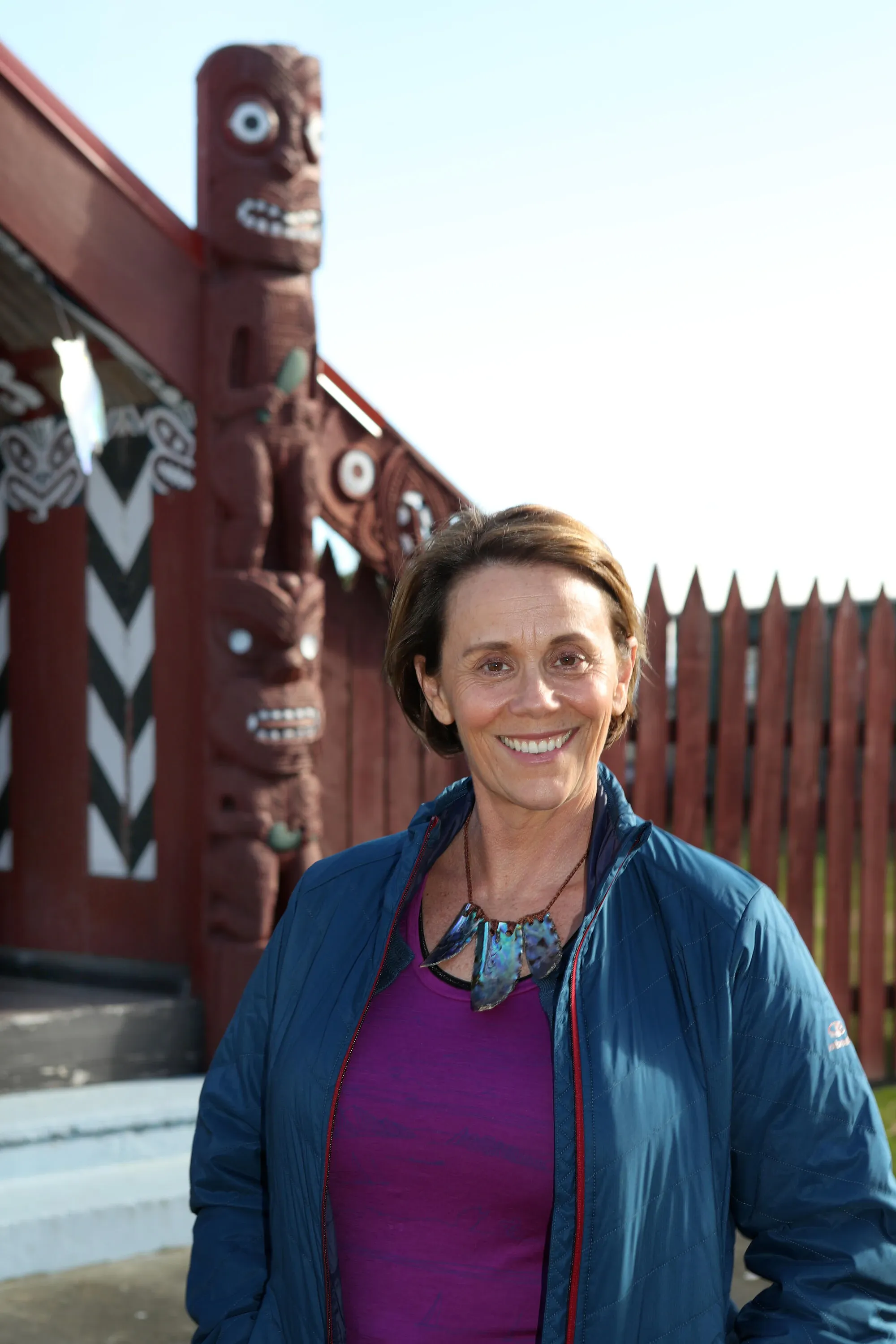
Te Wiki o te Reo Māori has been celebrated since 1975 to commemorate the 1972 Māori language petition to parliament to have te reo recognised as an official language of New Zealand. Hinewehi Mohi (Ngāti Kahungunu, Ngāi Tūhoe) reflects it’s “kind of nutty” that back then, te reo wasn’t celebrated or recognised.
In 2019, she co-produced the popular album Waiata Anthems, working with music artists from Aotearoa to translate their hit songs into te reo Māori.
“Waiata Anthems was an incredible project because it empowered the artists to sing in Māori and therefore really express their love for this country - but a love for the language as well.”
Her new role of Pītau Whakarewa Māori Membership Growth & Development Leader at APRA focuses on the growth and future of Māori music and the development of a bilingual music industry.
“I would love to continue to focus my efforts on revitalisation of the language through performance of waiata - either through recordings or live performances - because it’s something that transcends all boundaries.”
Mohi sees the potential of music as a platform to promote and revitalise te reo Māori.
“It’s the most amazing thing to be able to express yourself or connect with people, It’s a really powerful platform for telling our own stories and expressing our own sense of identity.”
Te reo o Ngā Tīpuna
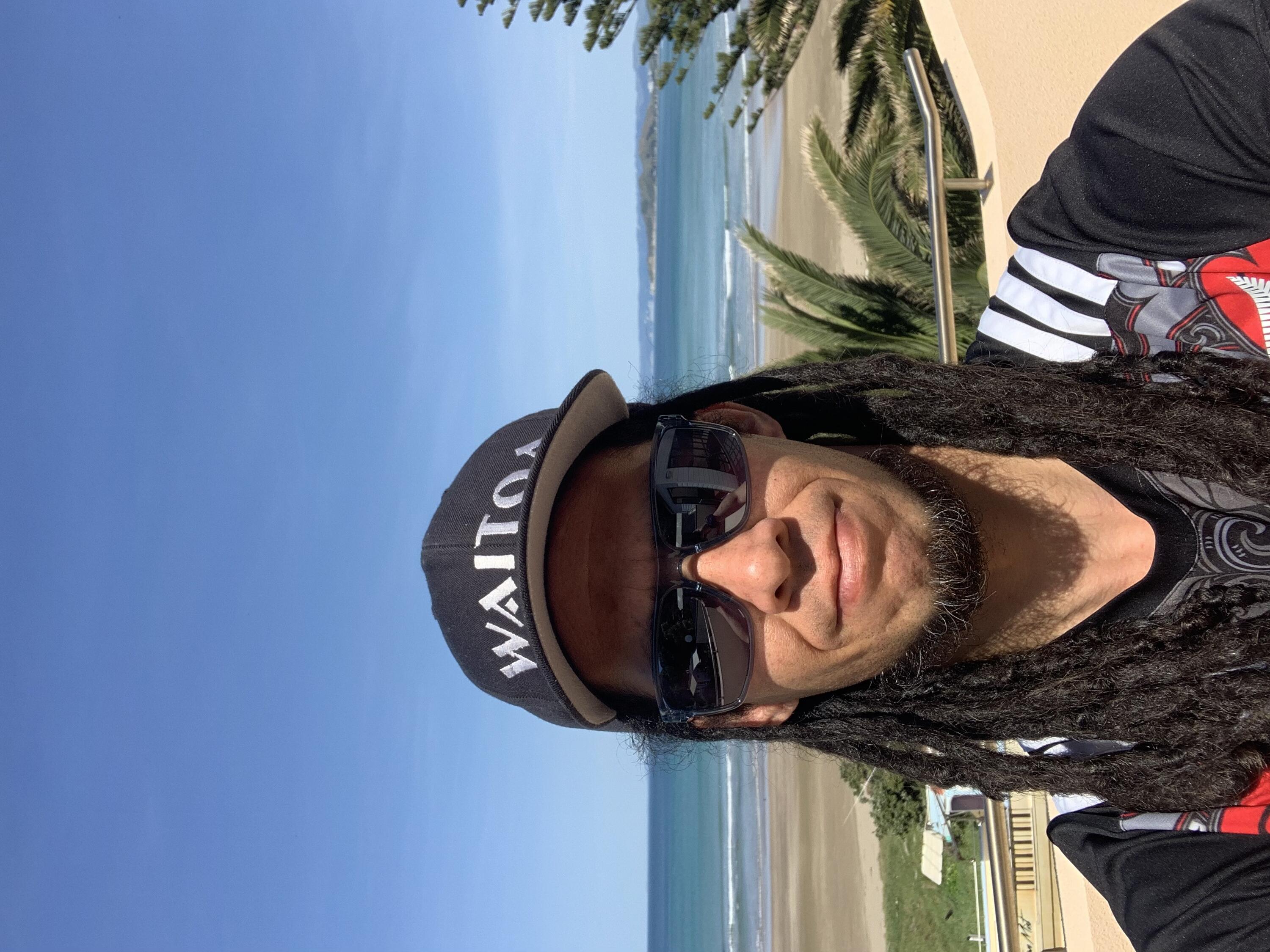
Waitoa left a career as an educator to dive full-time into the arts.
“The reason I’m in this realm and in this industry in the arts is because I see narrative every day. I see narratives from my tīpuna that relate to us every day, especially to our young tamariki & rangatahi. Being able to provide a platform where those narratives can be heard, can be told by us - for us - but to everybody, is something I’m very passionate about in the theatre.”
His te reo Māori production of He Kura e Huna Ana premiered at the Court Theatre in Christchurch and then toured nationally with Taki Rua Productions.
“To me whakatauki, kīrehu - all of these kōrero from our tīpuna aren’t just there for us to hear – they’re there to guide us, to help us guide others, to provide understanding, to whakatika if it needs to be. All the other aspects of our lives that we live today is in the stories of our tīpuna”.
Waitoa recently created the new kaupapa, Mahi Mahi Productions in Ōtautahi as an avenue to continue his creative pursuits and develop new works.
“I see a lot more for our young people in the arts - and the more of us that can get involved and create an environment that's safe for our Māori within the arts, the better off the arts will be.”
A Māori worldview
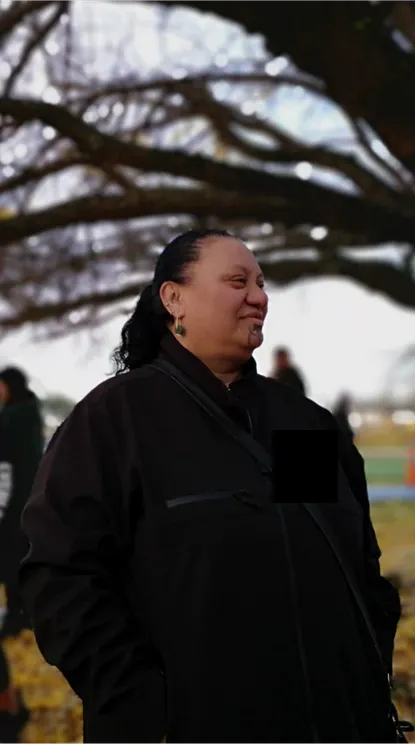
Ataahua Papa (Ngāti Koroki Kahukura, Ngāti Mahuta, Waikato) has recently started in the newly created role of Kaihautu Māori at Auckland Arts Festival, responsible for the Toitū Te Reo programme and Māori programming. Ataahua reflected on the ups and downs of this year in a global pandemic.
“This whole COVID situation gave us a chance to really sit down and think about what are the things that are important for us. For those who were able to join onto all of the platforms on social media, I was blown away by the creativity of our people. Ngā āhuatanga o te reo Māori. Our people are really talented and when you have to sit down and really look inside yourself with what’s there - it’s amazing what we come up with.”
Papa worked for many years in the USA presenting Māori cultural performances, and as a cultural consultant and booking agent. Her passion has always been to put the kaupapa of Māori arts on an international stage. She also sees programming as an opportunity to create positive social change.
“The kōrero about racism - we need to try to get in there and flip the way they think. If they see things in a positive light, they are more inclined to pick up some of our whakaaro and they way that we think about things.”
Te reo connects us
Reflecting on how far we have come as a nation in our relationship with te reo Māori, there were many people acknowledged during the panel for their tireless commitment to the cause - educators, academics, artists and advocates. The late Dr Hirini Melbourne, Te Wharehuia Milroy and Nancy Brunning were mentioned with aroha. And those still with us including Pou Temara, Sir Tīmoti Kāretu, Tama Waipara, Moana Maniapoto and Hone Kouka were acknowledged for their championing of te reo or pathways for Māori into the arts.
“I think there has been a considerable groundswell about the love of the language and how we can all engage, be language champions and take responsibility, as well as celebrate the language through art forms and participation in other ways,” states Mohi.
“He Taonga tuko iho te reo,” said Papa. “Our language is a treasure that has been passed down and so it’s up to us to make sure we use it as much as we can. Kōrero Māori i ngā wā katoa, i ngā wāhi katoa. I tenei wiki - Te wiki o te reo Māori - he kaupapa nui tēnā”.
Waitoa agrees “it’s more important than ever for us as Aotearoa to understand what Mātauranga Māori is, what Te Wiki o te Reo Māori means to Māori, what Mahuru Māori means to Māori.
“It’s not just speaking Māori for one week, one month. Ao te po, po te ao. Day and night.”
Make every day a te reo day
Over one million people signed up and took part in the Wā Tuku Māori Māori Language moment on Monday 14 September. Each panellist had suggestions for the Māori Language Moment, which are
great for every day learning.
- Hinewehi Mohi: Soak up some beautiful waiata. Listen to a song, sing along with a song, write a
song, perform a song!
- Ataahua Papa: Build up your puna kupu:
- Look up a word that relates to where you are and see if you can use that kupu in its correct context for the rest of today. And do it again tomorrow!
- Learn the Māori name of the place you live in and how to pronounce it.
- Support the arts! Go to theatre shows and concerts in te reo Māori, and go to events that are put on by Māori artists.
- Hōhepa Waitoa: Normalise te reo. It’s OK to hear it! Whiua ki te ao, whiua ki te rangi, whiua ki nga iwi katoa.
